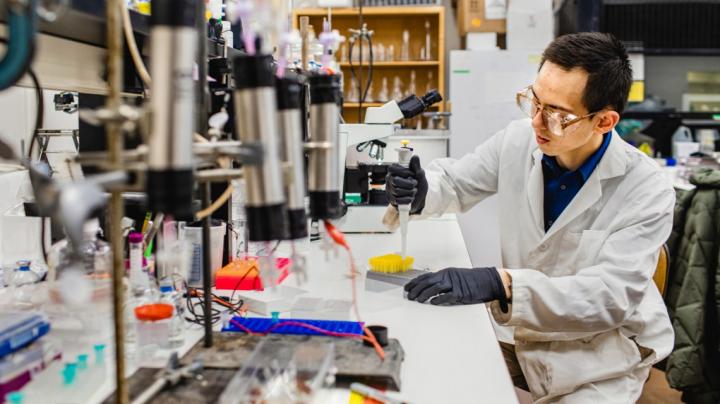
Credit: Allison Usavage, Cornell University
ITHACA, N.Y. – Cornell University researchers have found a new species of soil bacteria that is particularly adept at breaking down organic matter, including the cancer-causing chemicals that are released when coal, gas, oil and refuse are burned.
Dan Buckley, professor of microbial ecology and five other Cornell researchers, along with colleagues from Lycoming College, described the new bacterium in a paper published in the International Journal of Systematic and Evolutionary Microbiology.
The newly discovered bacteria belong to the genus Paraburkholderia, which are known for their ability to degrade aromatic compounds and, in some species, the capacity to form root nodules that fix atmospheric nitrogen.
The first step was sequencing the bacterium’s ribosomal RNA genes, which provided genetic evidence that madseniana was a unique species. In studying the new bacteria, the researchers noticed that madseniana is especially adept at breaking down aromatic hydrocarbons, which make up lignin, a major component of plant biomass and soil organic matter. Aromatic hydrocarbons are also found in toxic PAH pollution.
This means that the newly identified bacteria could be a candidate for biodegradation research and an important player in the soil carbon cycle.
In the case of madseniana, Buckley’s lab wants to learn more about the symbiotic relationship between the bacteria and forest trees. Initial research suggests that trees feed carbon to the bacteria, and in turn the bacteria degrade soil organic matter, thereby releasing nutrients such as nitrogen and phosphorus for the trees.
Understanding how bacteria break down carbon in soil could hold the key to the sustainability of soil and the ability to predict the future of global climate.
###
This research was supported the USDA National Institute of Food and Agriculture through a McIntire Stennis grant.
Cornell University has dedicated television and audio studios available for media interviews supporting full HD, ISDN and web-based platforms.
Media Contact
Jeff Tyson
[email protected]
607-793-5769
Original Source
http://news.
Related Journal Article
http://dx.




